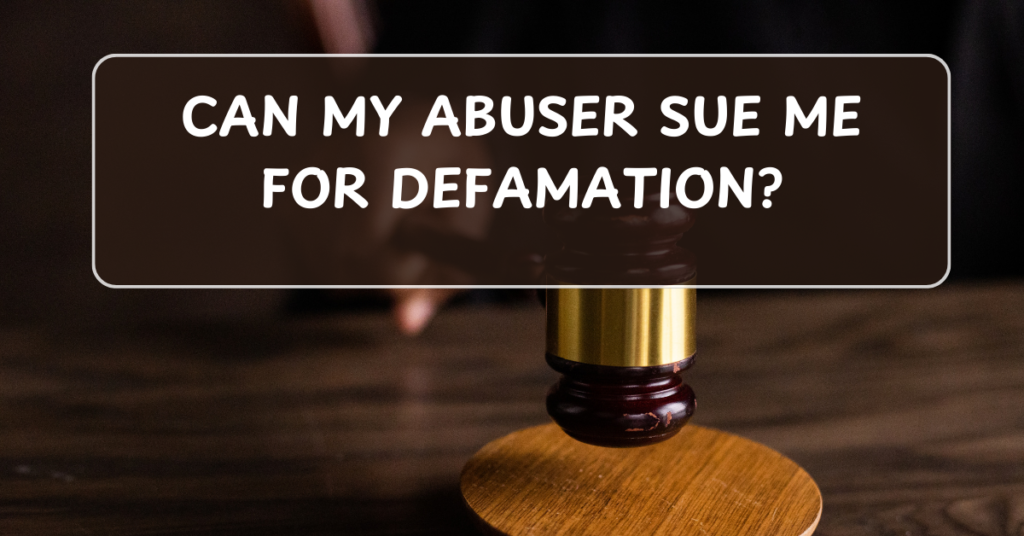
Yes, an abuser could potentially sue for defamation if the statements you make about them are false and harm their reputation. However, for a defamation lawsuit to be successful, the abuser must prove the following elements:
- False Statement: The statement made must be false. Truthful statements, even if damaging, are not considered defamation.
- Communication to a Third Party: The statement must be shared with someone other than the abuser. This can include posting on social media, telling friends or family, or publishing written material.
- Harm to Reputation: The statement must harm the abuser’s reputation, meaning that it could negatively affect how others perceive them.
- Negligence or Malice: In some cases, the abuser must prove that you made the statement carelessly or with malicious intent to harm them.
What Defenses Do You Have?
If you’re being sued for defamation, there are several defenses you can use:
- Truth: If the statements you made about the abuser are true, it is not defamation, even if they are damaging.
- Opinion: Opinions, as opposed to factual statements, are typically protected under free speech laws, and are not considered defamation.
- Privilege: In some circumstances, statements made in certain situations (e.g., during legal proceedings or within certain public settings) may be protected by legal privilege, even if they are defamatory.
What About Reporting Abuse?
Reporting abuse to authorities (such as the police or a social service agency) is generally not considered defamation, as these are typically protected communications when made in good faith. However, if you make false accusations that harm the abuser’s reputation, it could be considered defamation.
Impact of Defamation Lawsuits
Even if an abuser tries to sue you for defamation, it is important to remember that lawsuits for defamation can be difficult to win, especially if the statements you made were truthful or opinions. However, defending against a defamation suit can be expensive and emotionally taxing.
What to Do If You’re Being Threatened with a Defamation Lawsuit:
If you’re facing the possibility of a defamation lawsuit from your abuser, here are some steps to take:
- Consult an Attorney: It’s important to seek legal advice to understand your rights and options. An attorney can help you navigate the legal process and determine whether the abuser’s claims are valid.
- Document Everything: Keep detailed records of your interactions with the abuser, as well as any statements you made. This can help provide evidence if you need to defend yourself.
- Avoid Retaliation: It’s important not to escalate the situation. Continuing to make harmful or false statements could expose you to further legal action.
Conclusion:
While it’s possible for an abuser to sue you for defamation, they must meet specific legal requirements to succeed in their lawsuit. If the statements you made about the abuser are true or are protected as opinions, it is unlikely that the lawsuit would succeed. Nonetheless, it’s crucial to seek legal advice if you’re facing such a situation to ensure you are properly protected.


